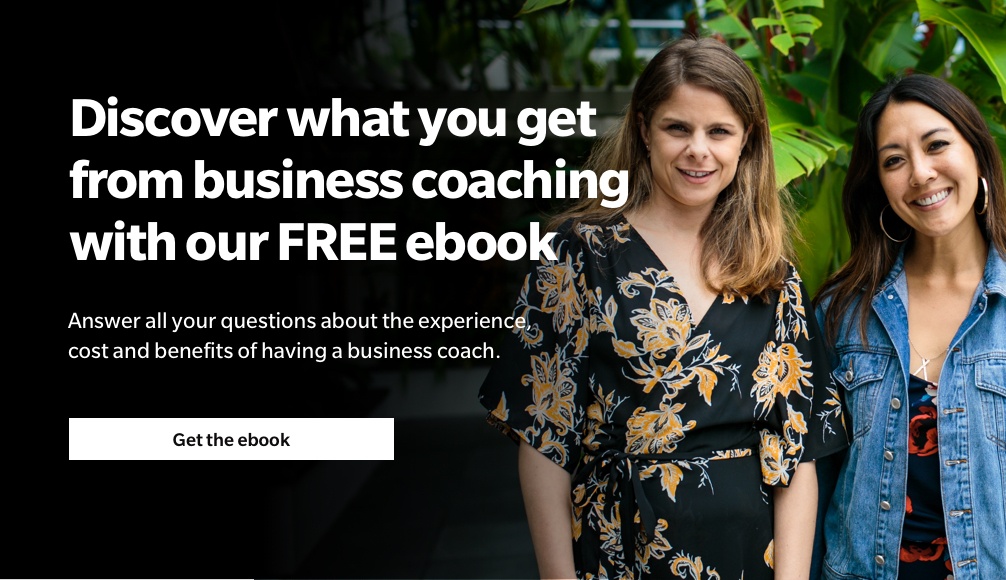If you’re reading this, chances are you already know a bit about business coaching. You may even recognize that you need something like coaching. At the very least, you know that some change or transformation has to happen in your business, because it’s just not performing how you want it to or giving you the freedom in life that you’d hoped for. While coaching isn’t a silver bullet to building your ideal business, it’s a sure-fire tool to help you get there if it combines the three necessary elements—what we at EMyth call the three C’s: Coach, Client and Content.
In my 25 years as a business coach, I’ve learned how critical it is to have all three of these elements. Many coaching companies and independent business coaches rely heavily on just two of the three: either a client-coach relationship that depends heavily on guidance without a roadmap, or a client-content model that promises a DIY solution that you can do on your own time. Trust me—if you’re in pain and want to genuinely systematize your business and reach the success of, say, OtterBox, neither of those models is going to work.
The role of each element
Coach: An unwavering guide
A strong business coach will have a methodology to help you transform your business, and they’ll use it to guide you—unapologetically. As someone entering coaching, you’re bringing one or several problems as seen from your perspective. A coach will help you figure out the truth behind what you’re seeing: what’s happening (or not happening) related to the issues, and what needs to change. They’ll also help you understand how you’re thinking about the issue now, what that way of thinking is costing you, and how to shift your mindset.
Client: Open mindset and receptive to coaching
Many business owners come to coaching knowing on some level that they’ll need to work on themselves. But very often, they want someone to simply tell them what to do to fix their problems. That’s not the experience of coaching. To make the investment a success, you need to be open and coachable, ready to commit to the guidance and work that comes from an expert mentor and a strong program.
Content: A proven system
EMyth is renowned for its systems, so it makes sense that we have a thoughtful, comprehensive system to help you design yours. Content is the objective tool in the coaching experience that grounds your work with your coach. It should include a curriculum and a core set of principles to guide and educate you, to provide tools, and to help you practice and embody a new way of thinking.
Coach + Client without Content = Therapy
Business coaching involves building a trusted relationship. And yes, working without content can deliver some results because you can still have personable and goal-oriented sessions. However, it’s risky to not have anything outside of that relationship to point to and be objective about. You may end up having a lot of great conversations that don’t go anywhere. For the coach, it can become too personal and they may struggle to give hard feedback. For you, it could quickly become something more like therapy. Without a program to depersonalize the process of developing your business, you’re more likely to spend time focusing on the past or making assumptions about what might work without a proven set of steps.
Consider my client who came to EMyth after working in her family business for years. She’d left that business to create one of her own, one that she wanted to start in the right way (her words) with systems—which her family’s company seriously lacked. It was emotional for her, and if she hadn’t had the content to lean on, our sessions would have been about her guilt in departing, in trying to build something better than her family had built. Having a predictable structure allowed her to take her personal feelings out of the work, which helped her get out of the mindset of guilt, shame, blame and anger. Instead, she was able to focus on achieving the results of each process. And practically speaking, the program gave her the direction to create something original, rather than just reinventing the same thing because it was all she knew.
Because a coach isn’t going to do the work of transforming your business for you, content is what forces you to apply what you’re learning after you leave your session.
Client + Content without Coach = Distance learning
Many business owners I meet say, “I don't think I necessarily need coaching—I just need to know what to do.” They think they simply need a model, worksheet, roadmap or book (probably overlooking the shelf full of business development books that have only gotten them to where they currently are). But trying to fix a major business frustration with a do-it-yourself tool is problematic: It allows you to overlook the interconnectedness of everything. Your problem making enough sales isn’t likely about just one thing—your salespeople, or your ability to generate leads—but about a series of broken, correlated systems that aren’t giving you the results you want. Without a coach to help you to see how your systems are connected or understand the real source of the problem, you’d get selective about what you learn and apply. And this may only serve as a band aid instead of a solution.
This type of approach becomes more conceptual than applied. You do the readings and exercises at your own discretion and pace, and your only urgency comes from feeling like you're behind. So, while the client-coach model can bring some results, the client-content model doesn’t—at least not if the goal is to fully systematize and transform your business. Because in order to transform, you have to get uncomfortable—and nobody does that to themselves on purpose. From my experience, a client will never hold themselves accountable to the degree that a coach will when it comes to making really important change. You need a coach there to help you clearly see the changes you need to make, and then help you apply them.
Putting it all together
When the three C’s are in balance, it’s powerful. That doesn’t mean that they’re always equal—but you do have to rely on them all. You, the business owner, are always the variable; Your coaching sessions will vary based on what you need to learn. For example, if you’re focusing on your marketing strategy and you already have a CRM and marketing campaigns, you’ll move more quickly or differently through that area of content than someone without those things. Business coaching is about personalized mentorship and application. While there’s always going to be empathy and subjectivity in the coach-client relationship, content provides the foundation, the order and objectivity you need to keep that process consistent.
Would you like to learn more about business coaching? We’d love to hear from you.




Comments